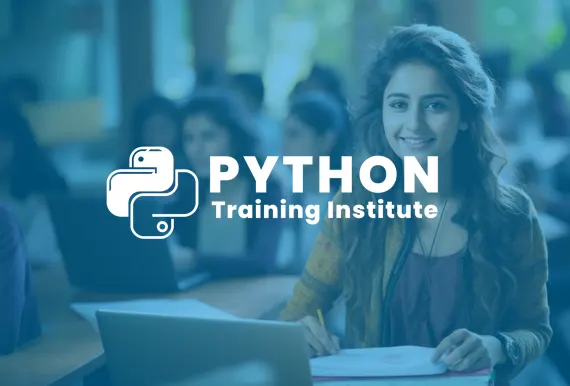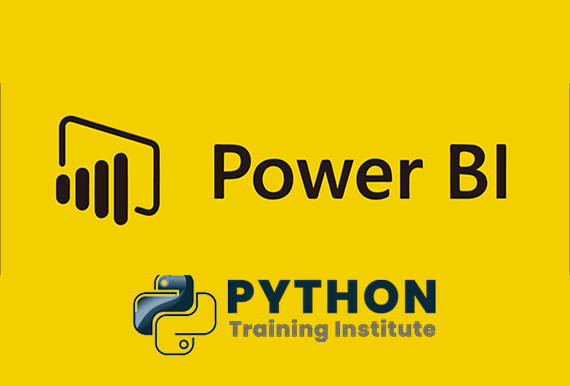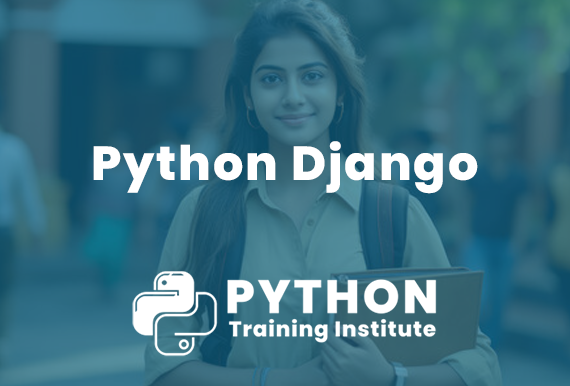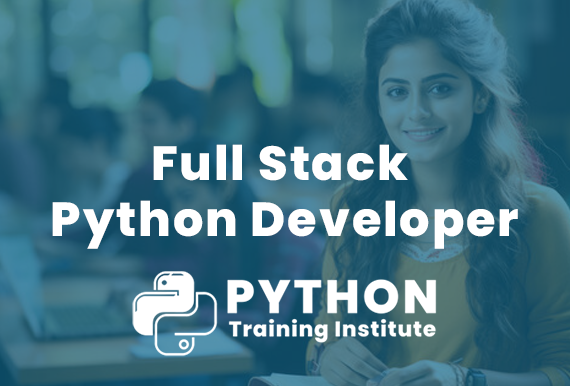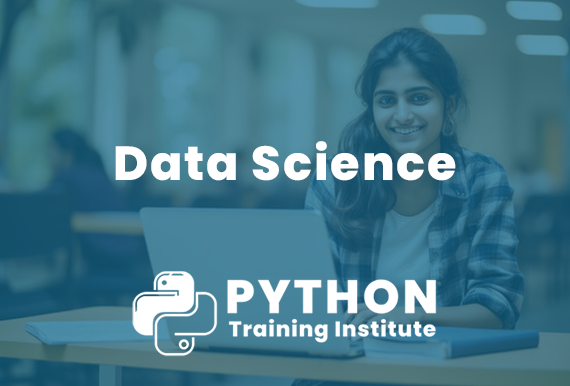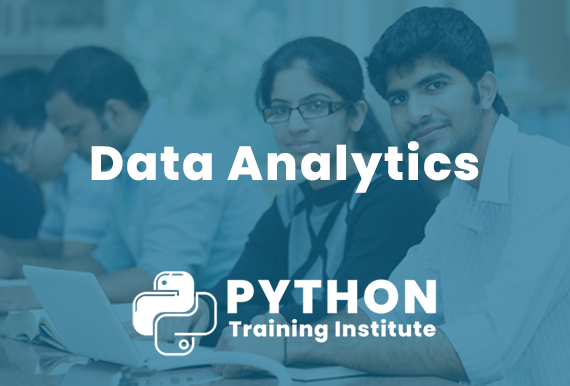Full Stack Python Developer Training in Pune
12,000 Enrolled ⭐⭐⭐⭐⭐4.8 out of 5 Based on 56988 Votes
Become a proficient Full Stack Python Developer with our comprehensive training program in Pune. Learn to build dynamic, scalable web applications using Python, Django, and Flask, along with front-end technologies like HTML, CSS, and JavaScript. This training covers both back-end and front-end development, preparing you for real-world projects and career opportunities. Whether you’re a beginner or a professional looking to upgrade your skills, our course equips you with the expertise to excel in full-stack development. Join us to kickstart your journey as a Full Stack Python Developer!

Full Stack Python Developer Course Training Key Features
Post Training Support
Real Time Projects : 2
Certification & Job Assistance
Course Duration : 2 Months
Hands-on Training
Full Day Lab Access
Get Free Career Counseling
One of our advisor will call you in less than 45 minutes*
Full Stack Python Developer Course Overview
Who's Eligible for the Full Stack Python Developer Course Training ?
About Full Stack Python Development
Full Stack Python Development combines both front-end and back-end development using Python and various web technologies. Learn how to design, develop, and deploy dynamic web applications that are scalable, secure, and efficient. With Python as the core language, this training focuses on integrating powerful frameworks like Django and Flask for the back-end, along with HTML, CSS, and JavaScript for front-end development.
Key Features of Full Stack Python Development
- Master both front-end and back-end technologies using Python.
- Learn popular frameworks like Django and Flask for building web applications.
- Develop responsive user interfaces with HTML, CSS, and JavaScript.
- Gain skills in database management with SQL and NoSQL databases.
- Focus on project deployment and maintenance using cloud technologies.
Who Can Enroll in Full Stack Python Developer Training?
- Students and Fresh Graduates: Individuals eager to enter the web development field and become proficient in full-stack development.
- Working Professionals: Developers, software engineers, and IT professionals seeking to broaden their skills in both front-end and back-end development.
- Tech Enthusiasts: Those interested in learning full-stack web development with a focus on Python.
- Entrepreneurs and Startups: Business owners or startup teams looking to develop web applications with Python technologies.
- Non-Technical Individuals: Anyone with basic programming knowledge looking to gain expertise in full-stack development.
Full Stack Python Developer training is perfect for those who want to create complete web applications and gain the skills needed to thrive in the ever-growing field of web development.
Full Stack Python Developer Course Syllabus
Full Stack Python Developer Training Course Content
- Web Designing (HTML)
- Architecture of a website
- Different technologies in making the website
- Web Development Introduction
- Module 2: HTML-Introduction
- History of HTML
- What you need to do to get going and make your first HTML page
- What are HTML Tags and Attributes?
- HTML Tag vs. Element
- HTML Attributes
- Module 3: HTML-Headers
- Title
- Base
- Link
- Styles
- Script
- Meta
- Module: HTML-Basic Formatting Tags
- HTML Basic Tags
- HTML Formatting Tags
- HTML Color Coding
- Module 5: HTML-Grouping Using Div Span
- Div Tag
- Span Tags
- Module 6: HTML Semantic Elements
- <article>
- <aside>
- <details>
- <figure>
- <footer>
- <header>
- <main>
- <mark>
- <nav>
- <section>
- <summary>
- <time>
- Module 7: HTML-Lists
- Unordered Lists
- Ordered Lists
- Definition list
- Module 8: HTML-Images
- Image and Image Mapping
- Background Images
- Module 9: HTML-Hyperlink
- Anchor Tag.
- URL – Uniform Resource Locator
- Relative and Absolute Address
- Module 10: HTML-Table
- < table >
- < th >
- < tr >
- < td >
- < caption >
- < thead >
- < tbody >
- < tfoot >
- < colgroup >
- < col>
- Module 11: HTML-I frame
- Using I frame as the Target
- Module 12: HTML-Form
- HTML Forms
- HTML Form Attributes
- HTML Form Elements
- HTML Input Types
- HTML Input Attributes
- HTML Input form Attributes
- < text area >
- < button >
- < select >
- < label>
- Module 13: HTML Graphics
- HTML Canvas Graphics
- HTML SVG Graphics
- Module 14: HTML Media
- HTML Media
- HTML Video
- HTML Audio
- HTML Plug-in
- HTML YouTube
- Module 15: HTML APIs
- HTML Geolocation
- HTML Drag/Drop
- HTML Web Storage
- HTML Web Workers
- HTML SSE
- CSS Module 1: CSS Introduction
- What is CSS?
- Why Use CSS?
- CSS Syntax
- CSS Module 2: CSS Core Properties
- CSS Color
- CSS Backgrounds
- CSS Box Model
- CSS Borders
- CSS Margins
- CSS Paddings
- CSS Box Sizing
- CSS Module 3: CSS Units
- Absolute Units
- Relative Units
- Max-Width
- Min-Width
- CSS Module 4: CSS Styling
- CSS Text
- CSS Fonts
- CSS Outline
- CSS Alignment
- Important
- CSS Module 5: Styling Elements
- Links
- Lists
- Dropdowns
- Tables
- Images
- Image-Sprite
- Image-Filters
- Clip-Path
- Forms
- CSS Module 6: Navbar
- Vertical-Navbar
- Horizontal-Navbar
- CSS Module 7: CSS Selectors
- Simple Selectors
- Combinator selectors
- Pseudo-class selectors
- Pseudo-elements selectors
- Attribute selectors
- CSS Module 8: CSS Positions
- Position
- Z-Index
- Float
- Clear
- Overflow
- CSS Module 9: CSS Layouts
- Display
- Block
- Inline
- Inline-Block
- Grid
- Flex-Box
- CSS Module 10: CSS Transformation
- CSS 2D Transforms
- CSS 3D Transforms
- CSS Transition
- CSS Animations
- CSS Module 11: CSS Responsive
- Responsive Introduction
- Responsive Viewport
- Responsive Breakpoint
- Media Queries
- JavaScript Module 1: Introduction
- What is JavaScript?
- Why Use JavaScript?
- Syntax
- Statements
- Comments
- JavaScript Module 2: Language Syntax
- Data Types
- Variable Declarations
- Var vs. Let
- Constant
- Dynamic Type
- Type of
- Type Conversion
- Objects
- Arrays
- JavaScript Module 3: Operators
- Arithmetic Operators
- Assignment Operators
- Comparison Operators
- Logical Operators
- Conditional (Ternary) Operator
- Bitwise Operators
- JavaScript Module 4: Loops
- For Loop
- While Loop
- Do While Loop
- JavaScript Module 5: Functions
- Function Declaration
- Function Expressions
- Arrow Functions
- Function Parameters
- Callback Functions
- JavaScript Module 6: Events
- Event Handling
- Event Listeners
- Mouse Events
- Keyboard Events
- DOM Events
- JavaScript Module 7: DOM Manipulation
- Document Object Model (DOM)
- DOM Selectors
- DOM Traversing
- DOM Manipulation Methods
- JavaScript Module 8: Error Handling
- Try and Catch
- Throwing Errors
- Custom Error Messages
- JavaScript Module 9: JavaScript Objects
- Object Properties
- Accessing and Modifying Object Properties
- Object Methods
- this Keyword
- Constructor Functions
- JavaScript Module 10: JavaScript Arrays
- Array Declaration
- Accessing Elements
- Array Methods
- Array Iteration
- Array Destructuring
- Multi-Dimensional Arrays
- JavaScript Module 11: JavaScript ES6 Features
- Let and Const
- Arrow Functions
- Template Literals
- Destructuring Assignment
- Rest and Spread Operators
- Modules and Import/Export
- Classes and Inheritance
- JavaScript Module 12: Asynchronous JavaScript
- Callbacks
- Promises
- Async/Await
- AJAX
- Fetch API
- JavaScript Module 13: JavaScript with DOM Events
- Event Handling Methods
- Event Propagation
- Event Delegation
- Event Bubbling
- Custom Events
- JavaScript Module 14: JavaScript with Web APIs
- Local Storage
- Session Storage
- Geolocation API
- Web Workers
- WebSockets
- JavaScript Module 15: JavaScript Debugging
- Debugging with Console
- Breakpoints
- Inspecting Variables
- Using Developer Tools
- Module 1: Introduction to React
- What is React?
- Why Use React?
- React Setup and Development Environment
- First React App
- Module 2: JSX
- JSX Syntax
- Embedding Expressions in JSX
- JSX and Components
- JSX vs HTML
- Module 3: React Components
- Functional Components
- Class Components
- Props
- State
- Component Lifecycle
- Module 4: React Router
- Introduction to React Router
- Setting Up React Router
- Routes and Navigation
- Nested Routes
- Module 5: React State Management
- State in React
- Updating State
- Using useState Hook
- useReducer Hook
- Context API
- Module 6: React Lifecycle Methods
- Mounting
- Updating
- Unmounting
- ComponentDidMount
- ComponentDidUpdate
- ComponentWillUnmount
- Module 7: React Forms
- Controlled Components
- Uncontrolled Components
- Handling Form Input
- Form Validation
- Module 8: React Hooks
- useState
- useEffect
- useContext
- useReducer
- Custom Hooks
- Module 9: React Performance Optimization
- React.memo
- PureComponent
- useMemo
- useCallback
- Module 10: React Testing
- Testing with Jest
- Unit Testing in React
- React Testing Library
- Module 11: React with Redux
- Redux Basics
- Actions and Reducers
- Dispatching Actions
- Connecting Redux to React
- Module 12: Advanced React Patterns
- Higher-Order Components (HOCs)
- Render Props
- Compound Components
- Controlled vs Uncontrolled Components
- Module 13: React with TypeScript
- Introduction to TypeScript
- Setting up React with TypeScript
- Type Annotations in React
- TypeScript with Props and State
- Generics in React
- Module 14: React Native
- Introduction to React Native
- Setting Up React Native Development Environment
- Creating a React Native App
- React Native Components
- Navigation in React Native
- Module 15: Advanced React Concepts
- Context API
- Code Splitting and Lazy Loading
- Error Boundaries
- Server-Side Rendering (SSR)
- Static Site Generation (SSG)
- Module 16: Deploying React Applications
- Build Process in React
- Deploying React to Netlify
- Deploying React to Vercel
- Deploying React to AWS S3
- Module 17: Security in React Applications
- Securing API Calls in React
- Protecting User Authentication and Authorization
- Cross-Site Scripting (XSS) Prevention
- Cross-Site Request Forgery (CSRF) Prevention
- Module 18: Real-Time Data in React
- WebSockets in React
- Real-Time Chat Application
- Integrating Firebase with React
- Module 19: State Management Libraries in React
- Redux Toolkit
- MobX
- Recoil
- Zustand
- Module 20: Progressive Web Apps (PWA) in React
- Introduction to PWAs
- Creating a PWA in React
- Service Workers
- Push Notifications in PWAs
- Module 21: React Performance Optimization
- Code Splitting and Lazy Loading
- React.memo and PureComponent
- Virtualization and Windowing
- Memoization Techniques
- Module 22: Testing React Applications
- Introduction to Unit Testing
- Setting up Testing Environment with Jest
- Writing Tests with React Testing Library
- Mocking API Calls in Tests
- End-to-End Testing with Cypress
- Module 23: React and GraphQL
- Introduction to GraphQL
- Setting Up Apollo Client
- Querying Data with GraphQL
- Mutations and Subscriptions
- Optimizing GraphQL Queries
- Module 24: Integrating External Libraries with React
- Using React with D3.js for Data Visualization
- Integrating Third-Party UI Libraries (e.g., Material-UI)
- Using React with Google Maps
- Integrating Payment Gateways (e.g., Stripe, PayPal)
- Module 25: Version Control with Git and GitHub
- Introduction to Git
- Git Commands and Workflow
- Working with Remote Repositories
- Collaboration with GitHub
- Branching and Merging in Git
- Module 26: Deploying Full-Stack Applications
- Introduction to Full-Stack Deployment
- Deploying the Frontend (React) and Backend (Node.js)
- Setting Up Continuous Deployment (CI/CD)
- Deploying to Cloud Services (AWS, Heroku)
- Module 27: Career Readiness and Interview Preparation
- Building a Strong Portfolio
- Preparing for React Developer Interviews
- Soft Skills for Developers
- Job Search Strategies
- Mock Interviews and Feedback
Full Stack Python Developer Related Real Time Project
Full Stack Python Developer Related Common Classroom Project List
1. E-Commerce Website
Description: Build a fully functional e-commerce website with Django, including product listings, shopping carts, and an integrated payment gateway.
Frontend: HTML, CSS, JavaScript (React or Vue.js)
Backend: Django (Python)
Database: PostgreSQL or MySQL
Features:
- User registration and authentication
- Product catalog with categories, search, and filters
- Cart functionality with add, remove, and update items
- Checkout process with integration to payment gateways like Stripe or PayPal
- Admin panel for managing products, orders, and users
- Order history and user dashboard
Real-World Skills:
- Full-stack development using Django and React
- Payment gateway integration
- Admin panel management
- Security features like CSRF, XSS, and SQL Injection prevention
2. Job Portal
Description: A job portal web application where companies can post job listings, and candidates can apply, with features such as job search and application tracking.
Frontend: HTML, CSS, JavaScript (React or Angular)
Backend: Flask or Django (Python)
Database: PostgreSQL or MongoDB
Features:
- Job listing and search functionality with filtering options
- User authentication for job seekers and employers
- Candidate resume upload and application submission
- Admin panel for managing job posts, applications, and users
- Job alerts and notifications for job seekers
- Job application status tracking
Real-World Skills:
- Building REST APIs with Flask or Django REST Framework
- Implementing CRUD functionality
- Real-time notifications (e.g., email alerts)
- Role-based authentication (admin, employer, and job seeker)
3. Social Media Application
Description: Create a social media app where users can create posts, follow other users, like and comment on posts, and send private messages.
Frontend: React or Vue.js
Backend: Django or Flask with Django Channels (for real-time features)
Database: PostgreSQL or MySQL
Features:
- User registration, login, and profile management
- Post creation, liking, commenting, and sharing
- Following/followers system
- Private messaging with real-time updates using Django Channels or WebSockets
- Real-time notifications for comments, likes, and new followers
- Search functionality for users, posts, and hashtags
Real-World Skills:
- Real-time communication (WebSockets/Django Channels)
- Full-stack development with React and Django
- Integration of notifications and message systems
- Building complex relationships between users and posts (many-to-many, one-to-many)
4. Online Learning Management System (LMS)
Description: An online platform where instructors can create courses, and students can enroll, track progress, and complete assignments.
Frontend: React or Angular, CSS frameworks (Bootstrap, Material UI)
Backend: Django with Django REST Framework (Python)
Database: PostgreSQL or MySQL
Features:
- Course creation and management for instructors
- User registration and authentication (students and instructors)
- Course enrollment, progress tracking, and assignment submission
- Video and document upload for courses
- Discussion forums or Q&A features
- Payment integration for paid courses
- Admin panel to manage users, courses, and payments
Real-World Skills:
- Building a complex user management system with different roles
- Implementing a payment gateway for course subscriptions
- Handling file uploads for course content (videos, documents)
- Creating dynamic user dashboards
5. Real-Time Chat Application
Description: A real-time chat application where users can send messages to each other, create rooms, and share media files.
Frontend: React or Vue.js
Backend: Flask or Django with Django Channels or Socket.IO (for real-time communication)
Database: PostgreSQL, MongoDB, or Firebase (for real-time data sync)
Features:
- User authentication with JWT or OAuth
- Real-time messaging using WebSockets (Django Channels or Flask-SocketIO)
- Private and group chat rooms
- Image and file sharing functionality
- Message history (database storage)
- Push notifications for new messages
- Emojis, chat formatting, and media previews
Real-World Skills:
- Real-time application with WebSockets
- User-to-user and group messaging system
- File and image handling in chat applications
- Push notifications for real-time updates
- Chatbot integration (optional)
Note: We also assist in creating customized projects tailored to your college or university requirements.
Full Stack Python Developer Trainer Profile
Our trainers offer students a dynamic learning experience, encouraging exploration and mastery of subjects through real-world examples. They assist candidates in completing projects, preparing for interviews, and addressing their queries at any time to ensure thorough understanding.
- 10+ years of professional experience in their respective fields.
- Successfully trained over 3,000 students annually.
- Proficient in both theoretical concepts and practical implementation.
- Certified experts with exceptional credentials.
- Well-connected with HR professionals in leading multinational companies.
- In-depth subject expertise, staying updated with the latest industry trends and applications.
- Extensive experience working on real-world projects across various industries.
- Trainers are associated with top organizations, including CTS, TCS, HCL Technologies, ZOHO, Birlasoft, IBM, Microsoft, HP, Scope, Philips Technologies, and more.
Full Stack Python Developer Course Career Benefits
Python has become one of the most sought-after programming languages, especially in the full-stack development domain, due to its flexibility and powerful frameworks. A Full Stack Python Developer course offers career-enhancing opportunities by equipping you with the skills to build dynamic, data-driven applications. Here’s a comprehensive breakdown of how mastering full-stack Python development can significantly impact your career.
1. High Demand Across Multiple Industries
Python’s ability to serve as a full-stack solution has made it popular across various industries, including web development, data science, finance, and healthcare. Python developers skilled in both frontend and backend technologies are in high demand, offering you a broad range of career opportunities. Full-stack Python developers can work on everything from the user interface to the database, making them valuable assets in diverse sectors.
2. Lucrative Career Opportunities
With full-stack Python development, you can access high-paying job opportunities. Due to the growing demand for professionals who can handle both front-end and back-end development, companies are willing to offer competitive salaries. As you specialize in frameworks like Django, Flask, and libraries like React or Angular for the frontend, your earning potential increases significantly.
3. Diverse Job Roles
A Full Stack Python Developer course opens up multiple career paths in various domains. Here are some of the roles you can pursue:
- Full Stack Developer: Build and manage both the client-side and server-side of applications.
- Web Developer: Create dynamic websites and web applications with Python-based frameworks like Django and Flask.
- Software Engineer: Design, develop, and maintain software systems using Python and web technologies.
- DevOps Engineer: Manage infrastructure, deployment, and continuous integration processes in Python-based systems.
4. Global Career Prospects
Python is one of the most popular programming languages globally. Full-stack Python developers are in demand across tech hubs worldwide, from Silicon Valley to emerging startup ecosystems. Whether you’re targeting multinational companies or local enterprises, Python’s universal appeal ensures that your skills are transferable and highly sought after.
5. Ease of Learning and Application
Python is known for its simplicity, making it an excellent choice for developers at all skill levels. Full Stack Python development combines both Python-based backend frameworks (Django/Flask) and modern frontend technologies, ensuring you acquire a complete set of skills. The ease of Python’s syntax, along with the frameworks, allows for quicker learning and real-world application, enhancing your portfolio.
6. Versatility Across Tech Domains
Full Stack Python Development covers multiple areas, ensuring you stay versatile and adaptable in your career. Here are some domains where Python’s full-stack capabilities shine:
- Web Development: Using frameworks like Django and Flask for rapid backend development, paired with frontend technologies like React or Vue.js.
- Data Science & Analytics: Python excels in data analysis and visualization, empowering you to create data-driven web applications.
- Artificial Intelligence and Machine Learning: Python’s vast AI/ML libraries enable developers to build predictive systems and intelligent features into applications.
- Automation & Testing: Full-stack Python developers can automate routine processes and set up continuous testing pipelines for faster development cycles.
7. Career Growth and Advancement
Full Stack Python development positions you to excel in a career with faster growth opportunities. Employers value professionals who can handle end-to-end development, making you an asset for leading projects and teams. Moreover, your knowledge of both frontend and backend development ensures you’re ready for leadership roles and career advancement.
8. Freelance and Entrepreneurial Opportunities
Full Stack Python developers enjoy the freedom of freelance work or starting their own business. The ability to create entire web applications gives you the independence to take on diverse projects or launch startups. Python’s widespread adoption and easy deployment allow for quick prototyping and scalable solutions.
9. Future-Proof Skillset
The tech industry is rapidly evolving, but Python remains one of the most robust, scalable, and adaptable programming languages. Full Stack Python developers are equipped with a future-proof skill set that ensures your relevance in the job market for years to come. The ability to leverage the latest technologies, such as containerization, cloud computing, and microservices, makes Python a long-term career choice.
Full Stack Python Developer Job Profiles and Salary in Pune
Job Profiles, Roles, and Average Salaries in INR
| Job Profile | Role Description | Average Salary (INR) |
|---|---|---|
| Python Developer | Develop web applications, APIs, and software solutions. Optimize and debug code for performance. | Entry-Level: ₹5,00,000–₹7,00,000 Experienced: ₹8,00,000–₹12,00,000 |
| Data Scientist | Analyze complex data, build predictive models using libraries like Pandas and NumPy, and present insights. | Entry-Level: ₹6,50,000–₹10,00,000 Experienced: ₹12,00,000–₹20,00,000 |
| Machine Learning Engineer | Design and deploy ML models using TensorFlow and PyTorch; automate predictive analytics. | Entry-Level: ₹7,00,000–₹10,00,000 Experienced: ₹15,00,000–₹25,00,000 |
| Web Developer | Create responsive websites with Django/Flask; integrate front-end and back-end technologies. | Entry-Level: ₹4,00,000–₹6,00,000 Experienced: ₹7,00,000–₹10,00,000 |
| Automation Engineer | Write scripts to automate workflows; test and maintain automation tools. | Entry-Level: ₹5,00,000–₹6,50,000 Experienced: ₹8,00,000–₹12,00,000 |
| AI/Deep Learning Specialist | Develop deep learning models for tasks like NLP and image recognition using tools like Keras. | Entry-Level: ₹8,00,000–₹12,00,000 Experienced: ₹18,00,000–₹30,00,000 |
| DevOps Engineer | Automate CI/CD pipelines and infrastructure management; integrate applications and systems. | Entry-Level: ₹6,50,000–₹8,00,000 Experienced: ₹10,00,000–₹18,00,000 |
Key Notes:
- Salaries vary based on location, experience, and industry.
- Tech hubs such as Bengaluru, Hyderabad, and Pune typically offer higher packages.
- Certifications and practical experience significantly enhance earning potential.
Full Stack Python Developer Course Exams & Certification
Python Training Institute Certification is recognized and accredited by major global companies worldwide. We offer certifications to both freshers and corporate trainees upon completing the theoretical and practical sessions.
The certification from Python Training Institute holds international credibility and adds significant value to your resume. It enhances your career prospects, enabling you to secure top job positions in leading multinational companies.
Please note, the certification is awarded only after successfully completing the training program and practical project assignments, ensuring you gain hands-on experience and industry-relevant skills.

Full Stack Python Developer Jobs & Placement

Full Stack Python Developer Training Course Review



Why Should You Pursue Full Stack Python Developer Training with Python Training Institute Pune?
- Expert-Led Training: Learn from certified Python instructors with extensive real-world experience, ensuring high-quality education and a strong foundation in Python programming.
- Comprehensive Curriculum: Master Python’s key features, from basic syntax to advanced concepts like data structures, object-oriented programming, and frameworks such as Django and Flask.
- Hands-On Experience: Work on practical, real-world projects that help you build an impressive portfolio, boosting your career prospects in software development and data analytics.
- Flexible Course Schedule: With convenient timing options, Python Training Institute Pune accommodates working professionals, students, and anyone aspiring to learn Python.
- State-of-the-Art Infrastructure: Study in modern facilities equipped with advanced learning tools, provided by a leading training institute in Pune.
- Industry Recognition: Python Training Institute Pune is renowned across Maharashtra, ensuring your certification is valued in major cities like Mumbai, Nashik, Nagpur, Aurangabad, and Kolhapur.
- Local Expertise: Leverage Pune’s thriving tech ecosystem with opportunities for internships and collaborations with top IT companies in the region.
- Boost Your Career in Maharashtra: Whether you’re in Pune, Mumbai, Nashik, or any nearby city, Python Training Institute Pune provides the gateway to a rewarding career in software development, automation, and data science.
- Competitive Advantage: Stand out with training that covers core Python skills and specialized knowledge in frameworks and libraries, making you a well-rounded professional sought after by employers across Maharashtra.
Choose Python Training Institute Pune to kickstart your journey in Python programming and elevate your career in the rapidly growing field of technology, backed by a trusted reputation across Pune and Maharashtra’s top cities.
Mode of Full Stack Python Developer Training with Python Training Institute Pune
Python Training Institute Pune: Flexible Learning Options for All
Python Training Institute Pune provides multiple training modes to suit varied learning preferences and schedules. Whether you’re a student, a working professional, or part of a corporate team, we offer tailored solutions to match your specific needs.
Instructor-Led Online Training:
Learn Python from the comfort of your home with live, instructor-led sessions. This option is ideal for learners from Pune, Mumbai, Nagpur, Nashik, Aurangabad, Kolhapur, and other major cities in Maharashtra.
- Benefit from interactive sessions, personalized guidance, and recorded classes for flexible learning.
- Perfect for those seeking high-quality training without the need to commute.
Classroom Training:
Join Python Training Institute Pune for in-person classes and experience face-to-face interaction with expert trainers.
- Located in Pune, a renowned educational hub, this option is ideal for students and professionals from Pune and nearby areas like Shirur, Satara, and Baramati.
- Enjoy a collaborative and immersive learning environment.
Corporate Training:
Upskill your workforce with customized Python training programs designed for businesses.
- Python Training Institute Pune offers tailored corporate packages for companies in Pune, Mumbai, Navi Mumbai, Thane, Nagpur, and other key cities in Maharashtra.
- Empower your team to stay competitive with Python’s diverse applications in automation, data analysis, and web development.
Benefits for Pune and Maharashtra Regions:
- Local Expertise: Centrally located in Pune, the institute is easily accessible for learners from Mumbai, Nagpur, Nashik, and other cities in Maharashtra.
- Reputation: Known as a leading training provider, our certifications carry significant weight in the local job market.
- Convenience: With online and classroom training options, professionals in areas like Navi Mumbai, Thane, and Kolhapur can easily pursue training without extensive travel.
Choose Python Training Institute Pune for a comprehensive and flexible Python learning experience through Instructor-Led Online Training, Classroom Training, or Corporate Training. Gain the skills you need to excel in Python programming and open doors to a thriving career in technology.
Full Stack Python Developer Related Courses
Full Stack Python Developer FAQ's
What are the available modes of Full Stack Python Developer training in Pune?
Python Training Institute is a top-rated institute in Pune, offering comprehensive Python training with experienced trainers, hands-on projects, and global certification opportunities.
Is Full Stack Python Developer training suitable for beginners in Pune?
Yes, our Full Stack Python Developer course is designed for beginners. We start with the basics of Python and gradually cover advanced topics like web development, databases, and frameworks, ensuring a smooth learning experience.
What are the benefits of Full Stack Python Developer training for students in Pune?
Full Stack Python Developer training offers numerous benefits, such as hands-on experience with popular frameworks like Django and Flask, industry-ready skills, and the opportunity to build real-world projects that will boost your career prospects.
Can I attend Full Stack Python Developer classes while working in Pune?
Yes, our flexible class schedules allow you to attend training sessions during evenings or weekends, making it easier for working professionals to balance learning and work.
How long does it take to complete Full Stack Python Developer training in Pune?
The duration of the Full Stack Python Developer course typically ranges from 3 to 6 months, depending on the mode of training and your pace of learning.
Is there a fees installment option available?
Yes, Python Training Institute offers flexible installment options to make learning accessible and affordable for all students.
Will your institute conduct exams for global certification?
Yes, Python Training Institute conducts exams and provides guidance for global certifications to ensure students are industry-ready.
Is Python alone enough to get a job?
Python alone can open numerous job opportunities. However, pairing it with additional skills like data analysis, machine learning, or web development can enhance your career prospects.
Does the course include placement assistance?
Yes, Python Training Institute offers robust placement assistance, including mock interviews, resume building, and connections with hiring companies.
Does the course come with global certification?
Yes, our Python courses come with globally recognized certifications upon successful completion, adding value to your resume.
What are the available payment options?
We accept multiple payment options, including credit/debit cards, net banking, UPI, and installment plans.
Do you offer group discounts?
Yes, group discounts are available for teams or groups enrolling together. Contact us for more details.
What are the various modes of coaching provided by your institute?
Python Training Institute offers multiple modes of coaching, including classroom training, online sessions, and hybrid models to suit learner preferences.
About Us
Follow Us
Subscribe
Copyright 2025 – All Rights Reserved By WebAsha Technologies


